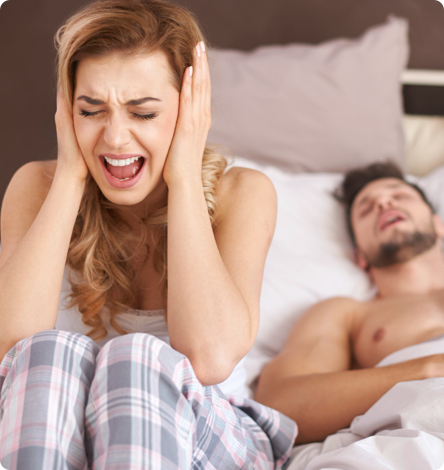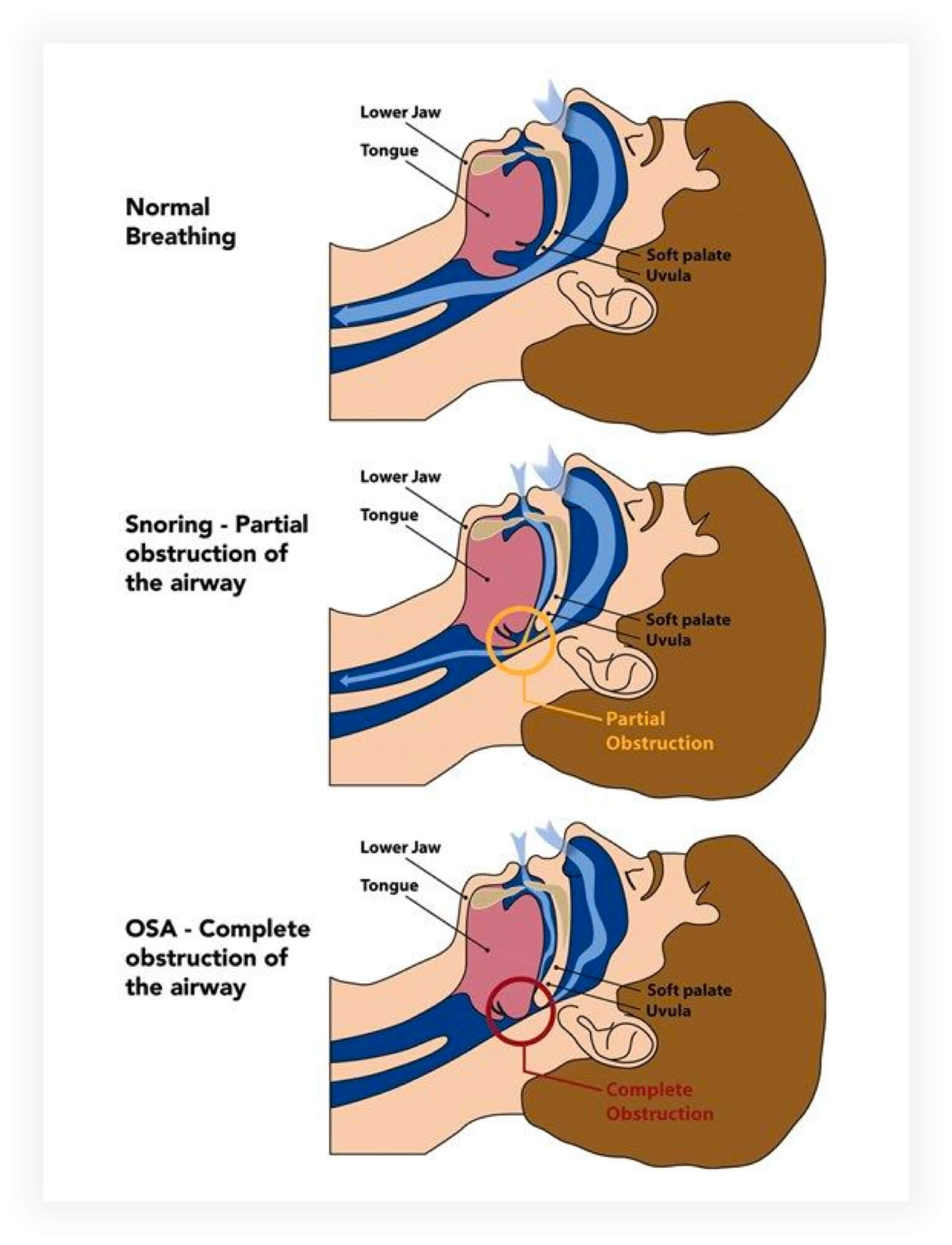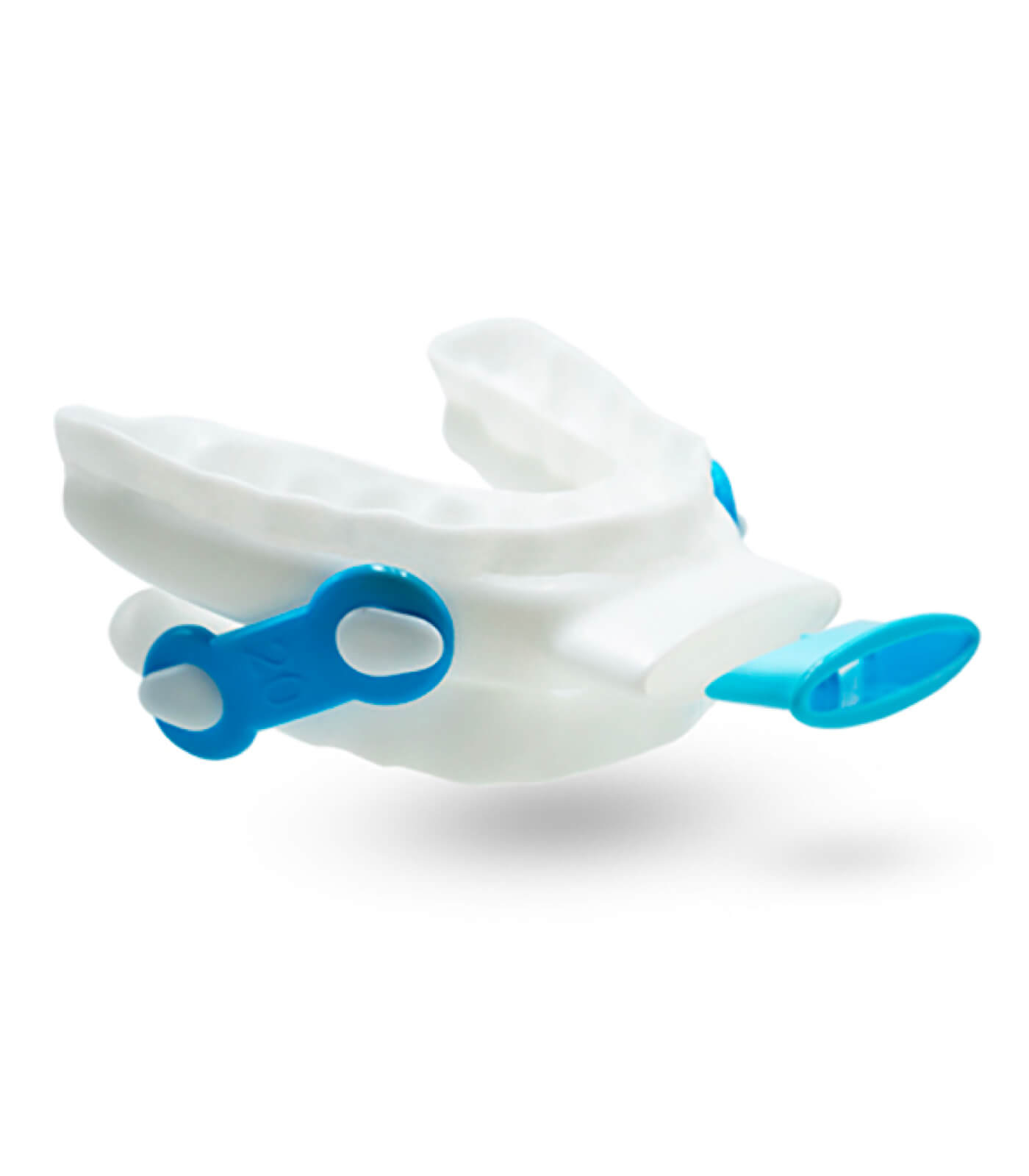Are damaged, misshapen, or discoloured teeth affecting your self-esteem? Dental veneers can improve the overall appearance of teeth and give you a boost of confidence. They are a popular choice among individuals that do not respond to other dental treatments such as retainers, braces, or teeth whitening.

Obstructive Sleep Apnea
Research shows that many people experience snoring throughout their lifetime. The snoring is typically a manifestation of Obstructive Sleep Apnea, as well as other health issues.
Obstructive sleep apnea (OSA) has increasingly caught the world’s attention owing to its potential to deteriorate the quality of life and low treatability rate. Research shows that OSA can lead to an apnea event where breathing is hampered for a few seconds. Breathing thus becomes difficult causing a decrease in oxygen concentration in the blood.
Subsequently, some organs could experience stress during such conditions, and this leads to various health issues. Furthermore, since apnea can impede breathing, it is considered a life-threatening condition. Sleep apnea can also cause daytime exhaustion, a problem known to cause many car accidents.
Speak With Our Team About a Snoring Appliances Today!
Get in touch with us and we can book you in for the start of your Snoring Appliances treatment plan!
Consulting a dentist is crucial to avoid such adverse occurrences. Some of the treatment measures include the use of snoring appliances. Snoring appliances are fitting dental pieces placed in the mouth to alter the position of the jaw, soft palate, and the tongue and are used to mitigate snoring as well as the symptoms of mild or moderate Obstructive Sleep Apnea.
The appliances are also referred to as Mandibular Repositioning Appliances (MRA), Mandibular Advancement Splints (MAS), or Mandibular Advancement Devices (MAD). The devices resemble a mouth guard and are placed in the mouth before going to bed.
Typically, the snoring devices are recommended for people whose OSA is triggered by a narrow airway passage or from a situation where the tongue relaxes back into the airway during sleep thus impeding normal breathing.

What Is Snoring?
Snoring occurs when the tissues of the throat and nose vibrate resulting in harsh or hoarse sounds. The condition has the potential to impede breathing partially and could be a sign of OSA. However, there are other causative factors of OSA including congestion, alcohol use, pregnancy, obesity, and allergies.
Snoring appliances work by clearing the obstruction. The appliance pushes the lower jaw forward and nudges the airway open. Once the breathing passages are opened, the vibrations caused by obstruction recede and snoring stops. In addition to preventing snoring, snoring appliances can help to improve alertness, concentration, and emotional stability during the day.
Similar to other forms of treatment, people respond differently to the appliances. For individuals with mild to moderate sleep apnea, there is usually a high rate of success. Additionally, for an individual who is not overweight, and for those who experience reduced apnea when they lie on their side, compared to lying on the back, such appliances have a high success rate.
Research also shows that the effectiveness of snoring appliances is compromised in individuals diagnosed with central sleep apnea. However, it is only when one tries the device that one can see the effect.
In addition to being portable, snoring appliances are a non-invasive form of treatment. Therefore, it is possible to carry the device anywhere in the purse or bag. Moreover, there is usually no need for surgery. Also, due to their ease of use, it is simple to comply with treatment.
If the appliance is used the right way, then it is unlikely to cause adverse side effects. However, due to the mechanism of action which relies on pushing the jaw forward, the initial use of the appliance results in discomfort. The discomfort is felt at the joint located at the back of the jaw but usually dissipates in the morning. With prolonged use, the discomfort tends to ease.
Our Recommended Snoring Appliances
We recommend the O2Vent Optima by Oventus Medical. Here’s why.
Sleep apnea patients with nasal obstruction are typically prescribed a CPAP (Continuous Positive Airway Pressure) machine rather than an oral appliance. This is because an oral appliance can limit mouth breathing — which is pretty crucial if you cannot breathe properly through your nose! — and make the patient uncomfortable.
However, many OSA (obstructed sleep apnea) patients who are prescribed a CPAP machine find it cumbersome to tolerate since it:
- Requires the user to wear a mask when sleeping
- Requires a power source
- Can be a hassle to maintain
- Is bulky to travel with
Fortunately, new technology is bringing forth advanced options in the world of snoring appliances. One of our top recommendations is the O2Vent Optima.

The O2Vent Optima by Oventus Medical is a customised, removable 3D printed oral device. It is specifically fitted to the patient’s mouth to help alleviate snoring and mild to moderate OSA.
The O2Vent® Optima utilises a unique airway channel that allows airflow to bypass common sites of obstruction such as the soft palate, tongue, and nose. This feature allows air to easily reach the back of the throat. It is the only oral device to do this.
The O2Vent Optima achieves this by:
- Pulling the lower jaw forward to open the airway and stabilise the tongue
- Providing a unique air channel to help keep patients comfortable, even if they have nasal congestion or difficulty breathing through their nose (this air channel ensures the unobstructed flow of air to the back of the throat)
- If we determine the O2Vent Optima is the right option for you, we start by taking an image of your teeth. We then send that image to Oventus where the customised appliance is made.
- Once the O2Vent Optima is ready, we will assess the fit and monitor its effectiveness in addressing your snoring and/or OSA.
- During the initial phase of using your Optima, we work closely with you to ensure we determine the correct positioning.
- Once the correct settings and fit have been established, you simply wear the Optima every time you sleep.
The Optima device is contraindicated for patients who:
- Are under 18 years of age
- Have loose teeth or advanced periodontal disease or restorative needs
- Have severe respiratory disorders
- Have central sleep apnea
How Do I Know If It’s Right for Me?
If you are searching for a discreet, comfortable alternative to a CPAP or have questions about snoring appliances, please contact us so we can help you determine if a snoring appliance could be appropriate for you.
We would be glad to answer any of your questions and determine the best treatment plan for your needs. Even if you have already started CPAP therapy and can’t seem to get used to it, we can talk with you about possible alternatives such as the O2Vent Optimus.
We create beautiful smiles with our experienced dental team!
Contact 123 Dental for more information and to discuss your dental options today!
FAQ’s
Should I Be Worried About Snoring?
Most people snore, making snoring normal but only to some extent. Even in the scientific world, there is debate about whether habitual or non-apnoeic snoring is harmful to health. If it disrupts other people’s sleep because of its extreme loudness, there could be an underlying issue.
A common sign that something is out of the ordinary is it your breathing is accompanied by interrupted breathing or gasps. In this instance, snoring is no longer considered normal and should be evaluated. Once diagnosed, you can get the help you need to manage your sleeping disorder, which could be linked to a breathing problem.
Who Snores More: Men or Women?
Anyone can snore, regardless of gender. In fact, half of the world’s population snore at some point. However, studies have shown that men snore more than women, mainly because of their physical traits. Snoring appears to run in the family and becomes more apparent as the person grows older.
According to SleepEducation.org, about 40% of adult men snore, compared to 24% of women. The likelihood of snoring increases until the age of 50 to 60. Most men around 70 years are less likely to snore.
Do Children Snore?
Yes, children can snore from time to time. Children around three years old and up tend to snore as they reach a deeper state of sleep. However, it does not mean it should be accepted as normal. If your child wakes up in a cranky mood or has behavioural issues, it could be due to poor quality of sleep.
To be on the safe side, you should speak to a paediatrician and dentist, especially if the child snores more than three times weekly. It could be accompanied by signs, such as irritability, excessive sleepiness during the day, and difficulty waking up in the morning.
What Are Ways to Stop Snoring Naturally?
Lifestyle changes help immensely for habitual snorers. If you smoke and drink, quitting can help. Smoking increases throat congestion and stomach acid secretion. Alcohol consumption, especially at night, can contribute to your snoring issues. If you are aware you snore when sleeping, it helps to avoid alcohol four hours or more before bedtime.
You can also sleep on your side and raise your head using pillows. Make sure you do not eat heavy meals three hours before sleeping, as well. Most people who snore are overweight. Therefore, losing weight and staying healthy can reduce snoring.
Is It Better to Breathe Through Your Mouth Whilst Sleeping?
Healthy people can breathe through their nose and mouth. However, mouth breathing is only necessary when you have a cold or allergies. Strenuous activities can force you to breathe through your mouth, which helps you get oxygen faster to help with muscle recovery. However, breathing through your nose is better and more natural.
The nose can filter out small particles, so they do not enter your lungs. Nose breathing adds moisture, keeping dry air away while also warming up cold air in the atmosphere before it reaches the lungs. Meanwhile, mouth breathing can lead to snoring, dry mouth, and even bad breath.
If I Don’t Have Sleep Apnoea but Have A Snoring Problem, Should I Still Seek Treatment?
Primary snoring is when a person snores but does not have a sleep disorder called sleep apnoea. If it has been confirmed that you do not have apnoea, it is still strongly recommended to seek treatment. More evaluations may be needed to determine the real culprit behind your snoring habit. Many people who regularly snore have been found to have carotid artery atherosclerosis, which is considered the top cause of stroke.
An examination can help determine whether your snoring is linked to a health problem or is simply a breathing issue that can easily be corrected.
Are There Other Options Aside from Wearing Snoring Appliances?
Snoring can be due to your relaxed muscles forcing the airway to become smaller. After diagnosis, you may be a candidate for surgery, which offers a lifetime cure for your snoring problem. The surgical procedure only lasts about 15 minutes, and it involves using a laser aimed at the back of the throat. However, not everyone can have a successful operation. It may not work, or the effects disappear over time.
Another is orthognathic surgery, which refers to surgery on the jaw bone. It is believed to be effective in treating snoring but has a high mortality risk.
What Is the Link Between Snoring and Pregnancy?
If you do not snore, it could begin when you get pregnant. About 75% of women find it difficult to get enough sleep, especially with hormonal changes in the way. You also have to deal with cramps, heartburn, and several trips to the bathroom. You also have your hormones to thank for when you start snoring while pregnant.
Weight gain also causes snoring and other related sleeping problems. Pregnant women tend to have swollen mucous membranes in the nose, which leads to congestion. That’s why women opt to breathe through their mouth when sleeping.


